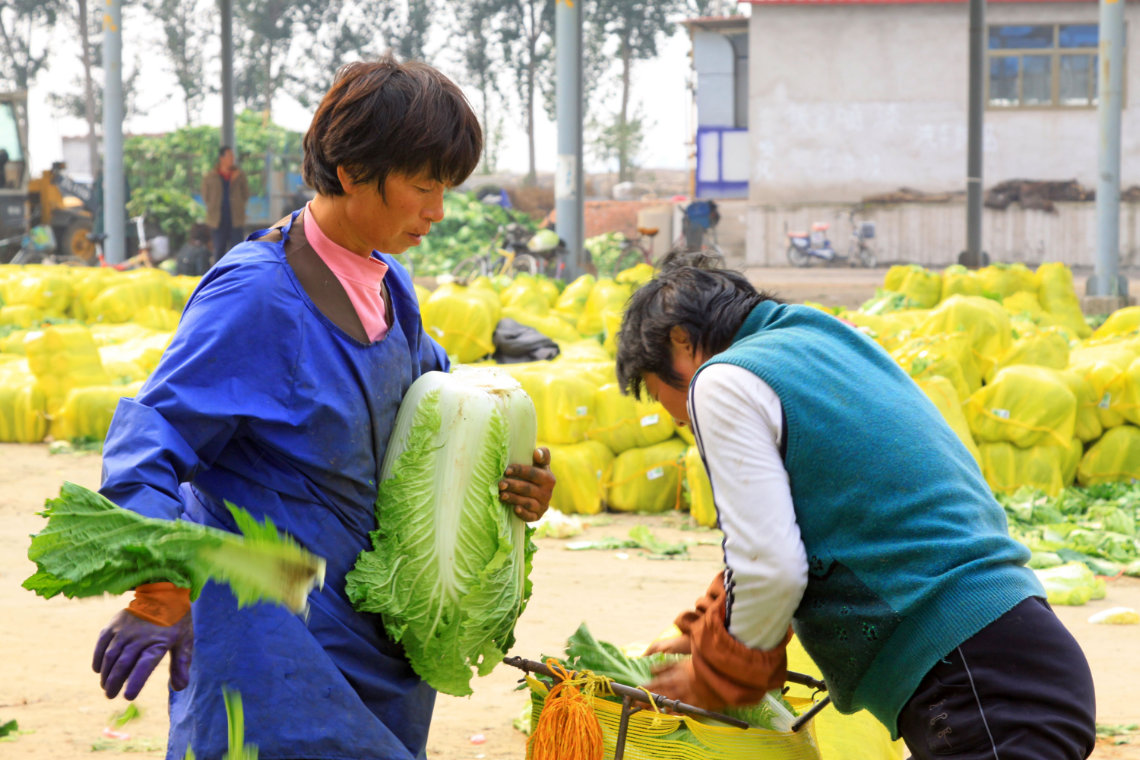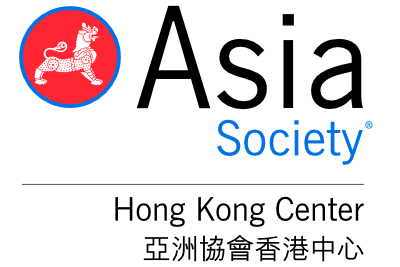News roundup: New Beijing mayor ‘vows to banish parts of the city to the provinces’
Top China news for February 7, 2017. Get this daily digest delivered to your inbox by signing up at supchina.com/subscribe.

Beijing mayor will peel off the city’s ‘cabbage leaves’
Beijing now has a population of 21.7 million. The city’s air quality has not improved much despite various anti-pollution measures in the last few years: last December, the capital had the dubious distinction of receiving the the first national red alert on smog.
At a symposium with state media on Sunday, newly appointed Beijing mayor Cai Qi 蔡奇 promised to take action by reducing activities, such as manufacturing, that are unrelated to the city’s status as the capital, and to make the city “leaner and more efficient.” The Financial Times reports (paywall) that the mayor said the city’s “functions” would be reduced “like peeling off cabbage leaves,” calling it a “vow to banish parts of the city to the provinces.” Cai’s plan also includes cutting coal consumption by 30%, and reducing new construction, but encouraging the establishment of educational facilities (see report in Chinese). Meanwhile, in an effort to drive migrant workers out of the city, the local government has torn down neighborhood shops and wholesale markets where they work and shut their children out of the public education system.
The long game for Xi Jinping and Wang Qishan
As we noted last week, Chinese state media celebrated the end of the Lunar New Year public holiday week by running an article for two straight days that included reference to president Xi Jinping being “the core.” The Communist Party is set to hold its 19th National Congress in autumn this year, and the meeting is likely to result in a reshuffling of senior leadership. Today the South China Morning Post (SCMP) published an article that asks the question, “Does China’s Communist Party follow any succession rules at all?” The piece includes quotes from several prominent scholars who believe that 2017 will see a revision of unwritten rules that dictate 68 as the age of retirement for top Party officials. This year might also confirm recent speculation that Xi will stay beyond the two term “limit” that has become conventional since the presidency of Jiang Zemin which lasted from 1993 to 2003.
In the SCMP article, Professor Steve Tsang, director of the SOAS China Institute in London, characterizes the dismissal by an official last October of retirement norms as “folklore” as “clearly an endorsed message to imply the protracted retirement of Wang Qishan,” the 68-year-old close ally of President Xi Jinping and manager of his anti-corruption campaign. The article also notes that although the Chinese constitution “limits every president and premier to two five-year terms,” there are no limits placed on “the position that really matters: Party general secretary.” Additionally, all previous “core” leaders of China, a title Xi Jinping gained last fall, have found ways to extend their grip on power, even if they did not stay in the top Politburo Committee. Other recent speculations on a change in leadership succession practices include reports in the New York Times and Financial Times (both paywalled).
Mari-Cha Lion exhibition in Hong Kong
Our featured partner this week has a fascinating cross-cultural art exhibition in Hong Kong running until February 19. The centerpiece is the Mari-Cha Lion, a rare mid-11th- to mid-12th-century South Italian bronze sculpture bearing Arabic decorations, on show together with a selection of Asian objects from the Mr. and Mrs. John D. Rockefeller 3rd Collection and other private collections, as well as contemporary artworks by seven Asian artists. Click here for details.
GM sold a record number of cars in 2016, thanks to China
In some rare good news for American business in China, CNN reports that General Motors sold 10 million cars in a year “for the first time in its century-plus history,” with strong sales in China making up for lackluster performance in the U.S.
Live Sinica tapings in Beijing
If you’re in Beijing on February 11 or 14, please come to a live taping of the Sinica Podcast — see the details here.
—Jeremy Goldkorn, Editor in Chief
This issue of the The China Project newsletter was produced by Sky Canaves, Lucas Niewenhuis, and Jiayun Feng. More China stories worth your time are curated below, with the most important ones at the top of each section.
BUSINESS AND TECHNOLOGY:
-
China’s forex reserves drop below US$3 trillion for first time in 6 years / SCMP
One of the biggest stories about business in China last year was capital outflow and later restrictions on outward investment and exchange. So far in 2017, the new capital controls appeared to have been working, though official numbers showed that by the end of January, the “psychological” threshold of $3 trillion in foreign exchange reserves was crossed. The South China Morning Post notes that analysts believe the landmark could change investor sentiment toward Chinese currency, and that if the yuan continues to depreciate, officials are likely to implement even stronger capital outflow regulation. Bloomberg reports that the continuing regulatory uncertainty is making foreign investors wary, as many don’t want to risk investing money in China that they won’t be able to withdraw later. -
Why China can’t get rid of its bank credit obsession? / SCMP
Despite President Xi’s order to deflate the property bubble and reduce long-term financial risks, a record monthly new loan size in the first month of 2017 is expected to beat the 2.51 trillion yuan record of January 2016. One key factor behind the potential bigger-than-ever loan size is China’s goal to achieve a growth rate of about 6.5 percent in 2017, which requires the country to heavily rely on issuing loans and encouraging real estate investment. In a bid to cool off the lending frenzy, the People’s Bank of China raised money market rates by 10 basis points last week.
- Appliance ‘Iron Lady’ leads top Chinese businesswomen list / Caixin
- JPMorgan’s China news is great…for China / Bloomberg
- Early look: China expected to kick off the new year with strong inflation, near-record credit / WSJ (paywall)
- Apple’s market share in China falls for first time / CNBC
POLITICS AND CURRENT AFFAIRS:
-
Donald Trump’s tweets about a judge find a critic in an unlikely place: China / NYT (paywall)
Judge He Fan of the Supreme People’s Court of China, a close watcher of U.S. judicial developments, published a blog post (in Chinese) slamming Donald Trump as “no different than a villain” for attacking a federal judge who blocked key parts of the administration’s recent travel ban. Though China has no judicial independence — all rulings are ultimately subject to the Communist Party’s approval, and the Party is not keen to give up that power — many reform-minded lawyers in China watch or even admire the American legal system. A couple of years ago, for example, it was reported that “tens of thousands” of Chinese justices and lawyers read a translation of the year-end report by Chief Justice John Roberts of the U.S. Supreme Court. -
Opinion: Isolating China doesn’t work / NYT (paywall)
John Pomfret draws on his extensive research into the history of U.S.-China relations to highlight parallels between Trump in America today and Mao Zedong in China in the past. The anti-immigration tendencies of the United States a century ago, expressed most vividly through the 61 years that America barred Chinese immigration, “persuaded the Chinese to favor Communism over capitalism,” while Trump’s “America First” rhetoric resembles the famed “Chinese people have stood up” speech of Mao Zedong in 1949. He concludes that if the Trump administration insists on a policy of othering and isolating China, it will “push China into a defensive crouch, validate its paranoia and allow it to nurture its anti-American fears,” potentially aiding in the resurgence of a Chinese nationalism very similar to what China had under Mao.
- Task force urges better U.S. engagement with China – from the Asia Society’s Center on U.S.-China Relations / NYT (paywall)
- China courts Ivanka, Jared Kushner to smooth ties with Trump – read more about Chinese reactions to Ivanka here / Bloomberg
- Chinese ships sail near disputed Japanese islands – a response to U.S. affirmation of Japan’s position / CNN
- Vatican debated whether to invite China to organ meeting – see news yesterday / Washington Post
- Opinion: When did some students in Beijing start being indicators of political sentiment in China? / Politics from the Provinces
- Opinion: China will miss the TPP / Foreign Affairs (paywall)
SOCIETY AND CULTURE:
-
China’s middle class anger at its education system is growing / Foreign Policy (paywall)
Last May, thousands of parents in 13 cities across Jiangsu Province as well as Hebei Province took to the streets to protest against a joint announcement made by the Ministry of Education and the National Development and Reform Commission. It required universities in 14 developed provinces, including Jiangsu and Hebei, and big cities like Beijing and Shanghai to allocate 210,000 spots for students from China’s poor inland areas. As the government has been gradually taking steps to promote education equality through reforms, anxiety spread among China’s provincial urban middle class who found themselves “caught between disdain for poor areas they see as unfairly compensated, and annoyance at richer ones that suck up the best resources.”
- Study retraction reignites concern over China’s possible use of prisoner organs / Science
- Why China is ripe for the couch – a country in need of psychological treatment / NYT (paywall)
- How the one-child policy has improved women’s status in China / What’s on Weibo
- Despite a new law, China is failing survivors of domestic violence / Washington Post






